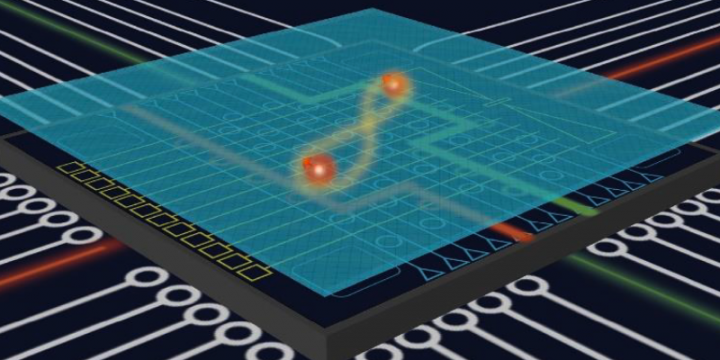Quantum technologies, by leveraging the principles of quantum mechanics, can offer revolutionary possibilities to our society. With the exponential computing power of quantum computers and the ability of quantum networks to communicate securely, protected by fundamental laws of nature, solutions emerge for secure digital communication, energy efficiency, medical diagnostics, environmental monitoring, and drug discovery. Due to their strategic importance, quantum technologies are already attracting significant geopolitical attention. Governments and companies are implementing specific policies and investing substantial resources to maintain competitive advantages and harness the transformative potential of these technologies.
Programme duration: 4 years | 2024 - 2027
Problem statement
Our society increasingly depends on computing power and communication. The major challenges we face demand secure and powerful methods for communication, simulation, and computation. Technologies like AI, materials design, the Internet of Things, and bioelectronics are key drivers in this context. The European Commission and the Netherlands have identified several Key Enabling Technologies to provide solutions. These technologies are crucial across various industrial sectors and are therefore linked to sovereignty, national security, supply chain resilience, and economic growth.
Quantum technology is one of these Key Enabling Technologies, as highlighted in EU policy, the Dutch National Technology Strategy, and the Growth Fund via Quantum Delta NL. The strategic programme for Quantum Technology addresses this through public-private partnerships, contributing to technology transfer and supporting the strong position the Netherlands has built over the past decades. This programme focuses on three key application areas: Quantum Computing, Quantum Communication, and Quantum Sensing.
Objective
The Netherlands has gained a very strong, and often leading, position in both research and commercialization of quantum technologies within Europe and globally. This success is supported by a relatively strong collaboration and strategic discussions within the Dutch quantum community, driven by initiatives like Quantum Delta NL.
However, as a result of quantum technology’s promise, the international dynamic is intense, with significant public and private investments being made globally. Therefore, this strategic programme focuses on the following goals:
- Strengthening public-private partnerships in the most promising domains of quantum technology.
- Enhancing the Netherlands' ability to maintain its international position and capitalize on its knowledge base.
- Accelerating the economic and societal impact of this new technology.
- Strengthening key positions within the European Union.
Approach
A quantum system comprises many components: a qubit chip integrating qubits, complex control electronics and wiring, often a cryogenic system, multiple software layers for orchestration and control, and finally, algorithms and applications. The Dutch public approach is distinguished by a cohesive full-stack systems perspective. This approach targets multiple promising technologies to develop complete systems, avoiding dependence on a single technology that may not ultimately succeed. Moreover, this strategy already provides various checkpoints for future supply chains, increasing the chances of a successful economic impact. We already see market leaders emerging within the Dutch ecosystem.
Submitters
The PPP projects aim to further strengthen technology development within existing and upcoming quantum companies and their supply chains, which are increasingly aligned with the quantum community. This strategic programme supports collaboration between knowledge institutions (such as Delft University of Technology/QuTech, TNO, the Hendrik Casimir Institute in Eindhoven, Leiden University, CWI in Amsterdam, the MESA+ Institute in Enschede), the government, and the private sector (industry and SMEs) to accelerate the broad commercialization of quantum technologies.
Relation with urgent transitions, KIAs and technologies
Quantum technology relies heavily on several critical enabling technologies: photonics, nanotechnology, cryogenic technology, ICT, and high-frequency electronics. The fabrication of complete quantum systems requires innovations across all these technologies. For this reason, we see numerous connections to these technologies in current and future projects. Quantum technology is regarded as a major promise for achieving progress in essential areas such as sustainability, security, and health.
Programme consortium
QuTech | TNO | TU Delft | TU Eindhoven | University of Twente (MESA+)
Urgent transitions
Knowledge and Innovation Agendas (KIAs)
KIA Key Enabling Technologies
KIA Klimaat en Energie
KIA Health & Care
KIA Maatschappelijk
Verdienvermogen
KIA Security
Programmes and projects
Holland High Tech supports programmes and projects in the sector High Tech Systems and Materials. Carried out in close collaboration between public and private partners within the mission-driven and innovation policy. Here is an overview funded R&D programmes and projects by Holland High Tech.





